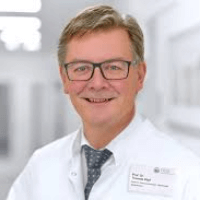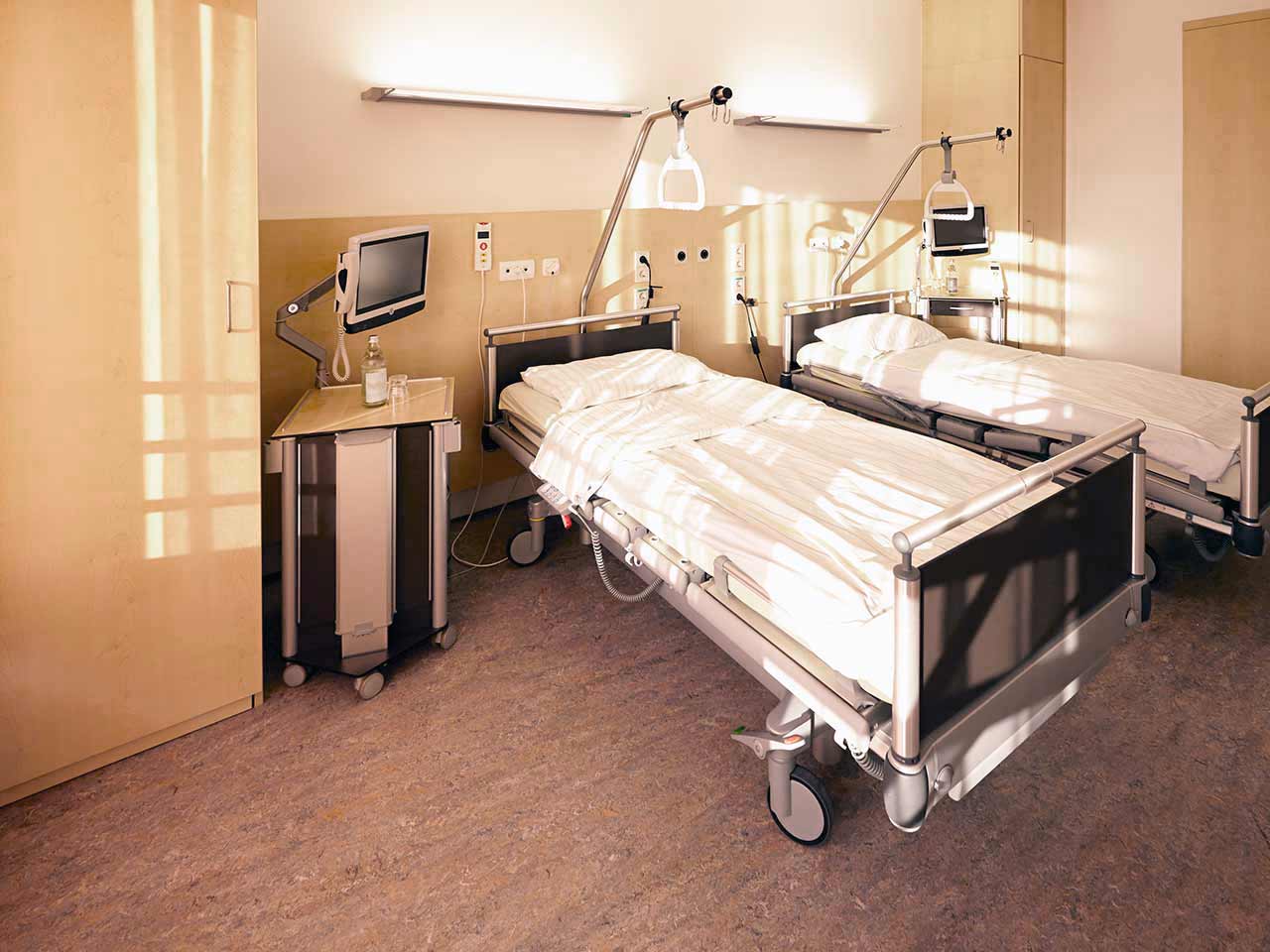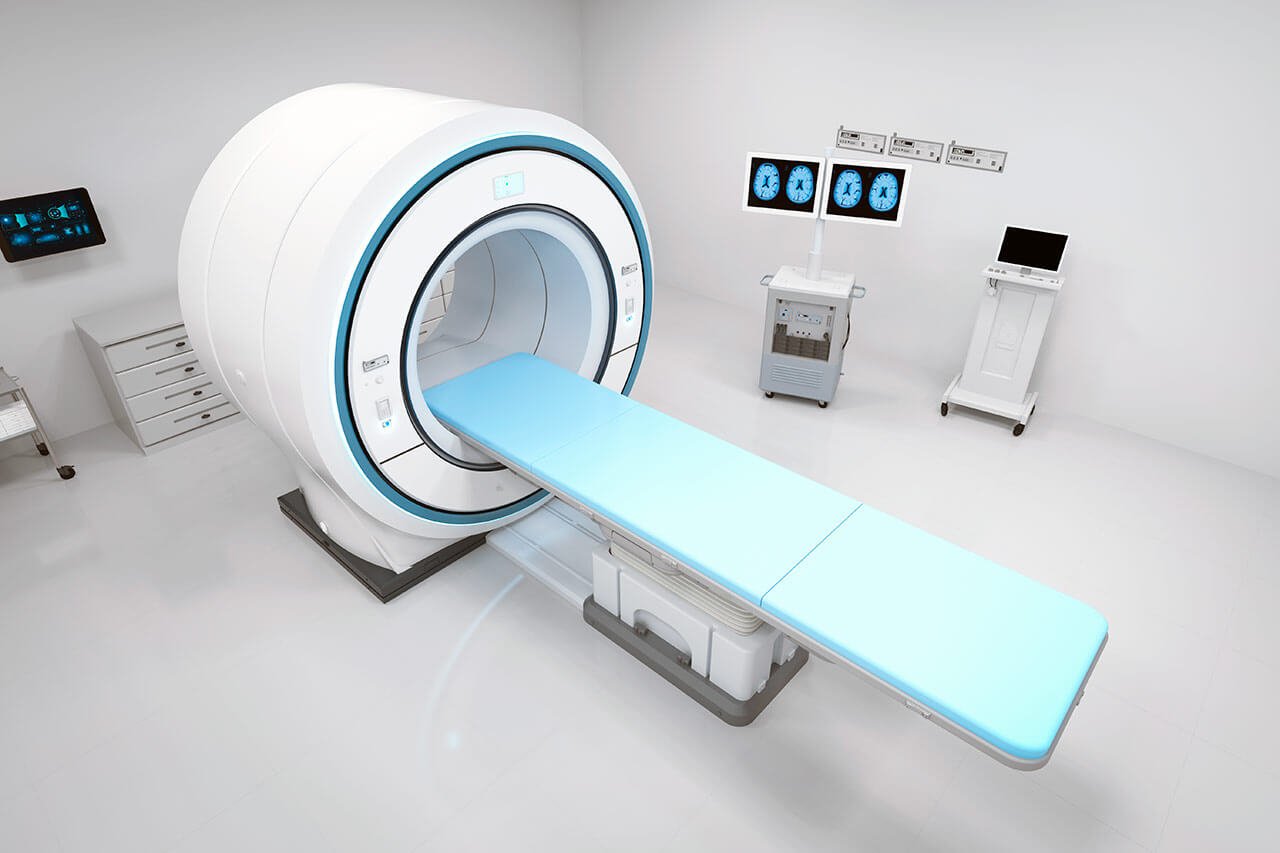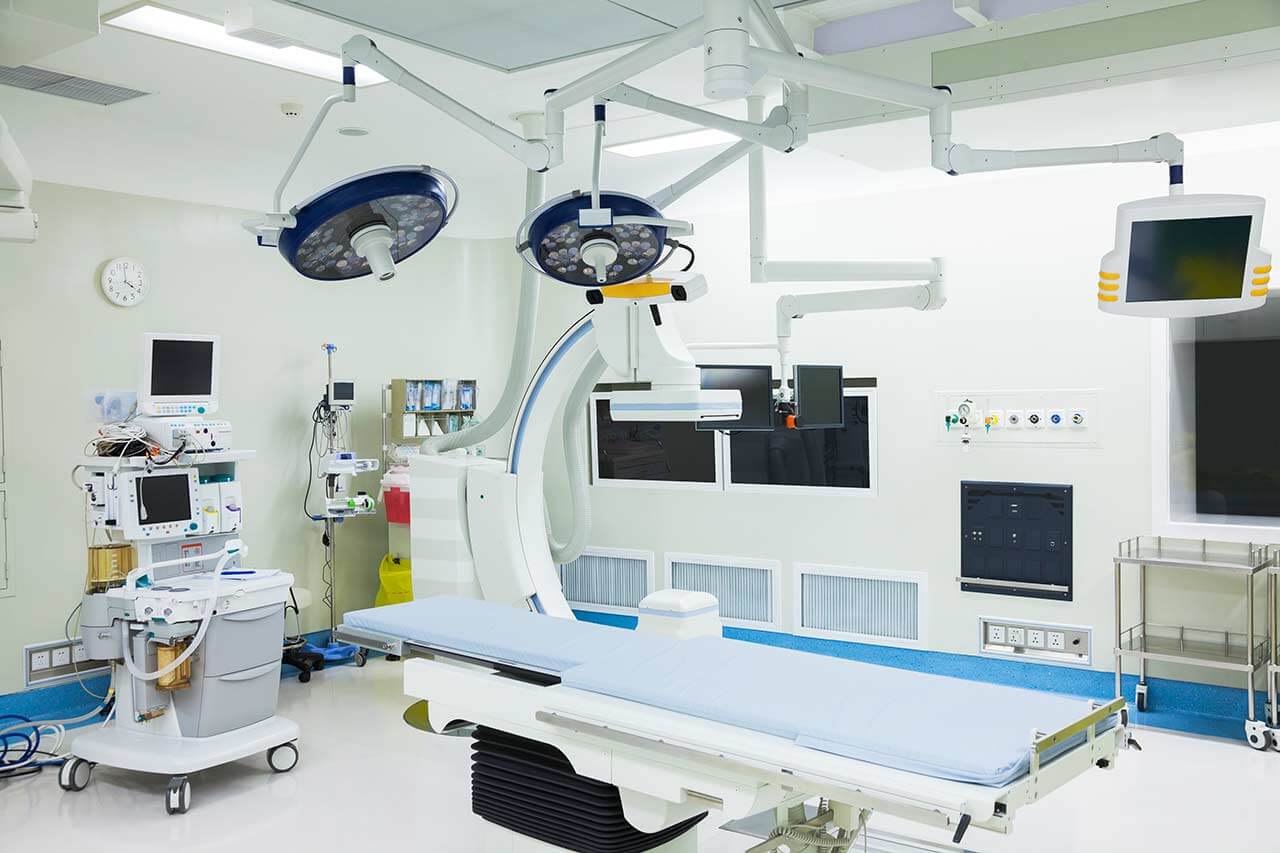
About the Department of Gastroenterology and Hepatology at ViDia Hospital Karlsruhe
The Department of Gastroenterology and Hepatology at the ViDia Hospital Karlsruhe offers the full range of services for the diagnosis and treatment of gastrointestinal and liver diseases. The department provides both inpatient and outpatient medical services. However, many procedures can be performed on an outpatient basis. The medical facility is equipped with advanced endoscopy and ultrasound diagnostic rooms. More than 8,000 endoscopic procedures are performed here every year, which is one of the highest figures in the southwestern part of Germany. It is important for the department's doctors to provide patients with comfortable and painless diagnostics and treatment, so sedation and anesthesia are actively used here. The team of the department's doctors has vast experience and competence in the area of their specialization, which allows them to provide top-class medical services. In their work, the specialists give preference to an interdisciplinary approach and actively cooperate with doctors from related medical fields. The treatment regimen is developed on an individual basis, taking into account the patient's clinical data, diagnosis, general health condition, age, and other factors. During the diagnostic and therapeutic process, current clinical protocols and hygiene and safety standards are strictly met. The department enjoys an excellent reputation in the region, and as a result, an increasing number of patients come here for medical services. The Head Physician of the department is Prof. Dr. med. Thomas Zöpf.
The department's team of gastroenterologists is responsible for the diagnostics and treatment of patients with gastrointestinal diseases, including gallbladder and pancreatic conditions. Patients with benign pathologies of the digestive system, including stomach and duodenal ulcers, stomach and bowel polyps, inflammatory bowel diseases (Crohn's disease and ulcerative colitis), and irritable bowel syndrome, often seek medical help from the department. In collaboration with abdominal surgeons, oncologists, and radiation therapists, the department's gastroenterologists provide medical care to patients with gastrointestinal cancers. The most common oncological pathologies in the clinical practice of doctors are colon cancer and stomach cancer.
Equally important attention in the medical facility is paid to the medical care for patients with liver, gallbladder, and bile duct diseases. The department has vast experience in the diagnostics and treatment of patients suffering from cirrhosis, hepatitis, benign and malignant liver tumors, inflammatory liver diseases, and autoimmune liver lesions. The availability of state-of-the-art ultrasound and endoscopic equipment in the medical facility allows doctors to perform high-precision examinations to detect the slightest abnormalities in the work of the organ and pathological changes in its tissues. For example, contrast-enhanced liver ultrasound and mini-laparoscopy with follow-up sampling of biological material for laboratory tests are widely practiced here.
The department widely uses endoscopic procedures for diagnostic and therapeutic purposes. Comfortable procedure rooms with state-of-the-art equipment are available here for these purposes. The department's specialists perform more than 8,000 endoscopic procedures every year, so they are deservedly proud of their vast experience and successful outcomes in this field. Endoscopic tests allow for the examination of the gastrointestinal organs from inside without any invasive manipulations. A special instrument (an endoscope) resembling a thin tube with an attached light source and a miniature video camera is used during the diagnostic procedure. The most popular endoscopic procedures in the department are gastroscopy and colonoscopy. When performing gastroscopy, the doctor examines the mucous membrane of the esophagus, stomach, and duodenum. Colonoscopy allows doctors to assess the condition of the inner surface of the intestine. Gastroscopy often helps detect gastric ulcers, inflammatory processes in the esophagus, and stomach polyps and tumors. As for colonoscopy, it is particularly valuable for the detection of colon polyps, a precancerous condition.
If the doctor detects pathological changes during endoscopic examination of the gastrointestinal tract, they can often immediately perform the necessary therapeutic procedures. For example, if polyps are detected in the colon or stomach, the specialist can perform a polypectomy for their removal. Endoscopic stent implantation can be carried out to eliminate stenosis in the digestive organs. The department successfully performs effective endoscopic interventions to remove potentially dangerous benign neoplasms and malignant tumors of the esophagus, stomach, and bowel in the early stages. These are endoscopic mucosal resections and endoscopic submucosal dissections. The main advantage of such treatment is the minimal trauma rate, as the pathological focus is approached through natural openings with the help of an endoscope without violating the integrity of tissues, that is, without any incisions. Both procedures can be performed under general anesthesia or deep sedation, which excludes any painful sensations during treatment.
The department's range of diagnostic and therapeutic services includes:
- Diagnostic options
- Ultrasound diagnostics
- Classic ultrasound scans
- Contrast-enhanced ultrasound scans
- Color Doppler ultrasound scans
- Endoscopic diagnostics
- Gastroscopy
- Colonoscopy
- Endoscopic retrograde cholangiopancreatography (3D technique)
- Endosonography, including endosonography-guided punctures
- Percutaneous transhepatic cholangiography
- Cholangioscopy
- Pancreaticoscopy
- Mini-laparoscopy
- Capsule endoscopy
- Double-balloon enteroscopy
- Chromoendoscopy
- Magnifying endoscopy with narrow-band imaging
- Ultrasound diagnostics
- Therapeutic options
- Drug therapy: intake of pills, infusions, and injections
- Therapeutic endoscopy procedures
- Polypectomy
- Endoscopic mucosal resection
- Endoscopic submucosal dissection
- Endoscopic foreign body removal
- Endoscopic dilation of digestive system stenoses: implantation of plastic stents and self-expanding metal stents
- Photodynamic therapy for the destruction of benign and malignant (in the early stages) gastrointestinal tumors
- Endoscopic cyst puncture and drainage
- Endoscopic hemostasis
- Endoscopic placement of feeding tubes (PEG and PEJ)
- Electrohydraulic lithotripsy for the fragmentation of the bile duct and pancreatic stones
- Endoscopic variceal ligation
- Endoscopic gastroenterostomy
- Endoscopic full-thickness resection of colon tumor lesions
- Other diagnostic and treatment methods
Curriculum vitae
Higher Education and Professional Career
- Since 01.2017 Head Physician, Department of Gastroenterology and Hepatology, ViDia Hospital Karlsruhe.
- Since 05.2012 Head Physician, Department of Internal Medicine, Hospital Diakonissenkrankenhaus Karlsruhe-Rüppurr.
- 07.2008 - 04.2012 Head Physician, Department of Internal Medicine, Sana Hospitals Duesseldorf-Gerresheim.
- 04.2003 - 06.2008 Managing Senior Physician, Section of Endoscopy, Department of Gastroenterology and Hepatology, University Hospital Essen.
- 01.1997 - 03.2003 Physician, Department of Gastroenterology, City Hospital Ludwigshafen.
- 07.1992 - 12.1996 Physician, Department of Gastroenterology, University Hospital Ulm.
- 1985 - 1992 Medical studies, University of Ulm.
Photo of the doctor: (c) ViDia Kliniken Karlsruhe





